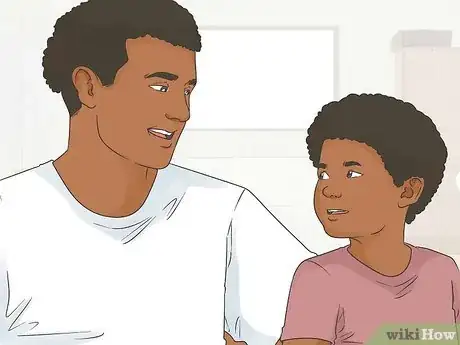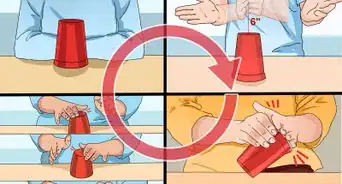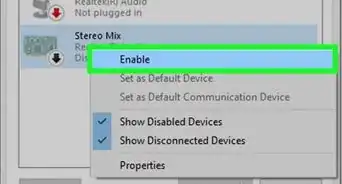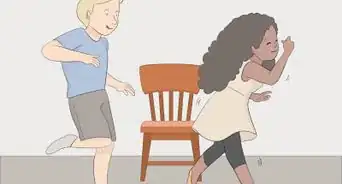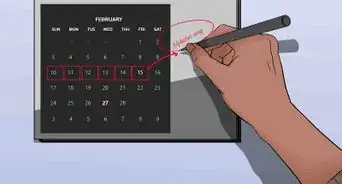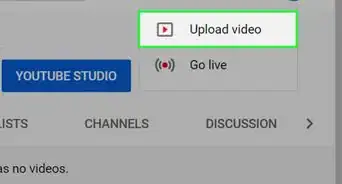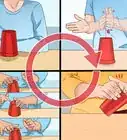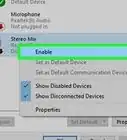This article was co-authored by Supatra Tovar, PsyD, RD. Dr. Supatra Tovar is a Licensed Clinical Psychologist (PSY #31949), Registered Dietitian, Fitness Expert, and the Owner of Dr. Supatra Tovar and Associates. Dr. Tovar has worked in the fields of health education, clinical dietetics, and psychology. With over 25 years of holistic wellness experience, she practices Holistic Health Psychotherapy. She combines her psychology, diet, and fitness knowledge to help those struggling with depression, weight gain, eating disorders, life transitions, and relationships. Dr. Tovar holds a BA in Environmental Biology from The University of Colorado Boulder, an MS in Nutrition Science from California State University, Los Angeles, and a PsyD in Clinical Health Psychology from Alliant International University, Los Angeles.
This article has been viewed 22,989 times.
Do you get angry whenever your child listens to explicit music and want them to stop? As a parent you have the right and duty to try to teach your child how to behave and to instill good values. However, you will be most successful if you have your child's respect and if you explain your reasons clearly. Children listen to those they respect and don't generally respond well to, "because I said so". Try the following steps to give your child a rational reason for not listening to explicit music.
Steps
-
1Explain to your child what you class as "explicit" music, so they know exactly what it is that you don't want them listening to. If you suspect they are already listening to lyrics or artists you don't approve of, make sure of your facts before you try to ban it. You may be able to reach a compromise about some albums with only one mild swear word.
-
2Explain to your child why you forbid certain songs or albums. You may believe explicit music is music that has bad teachings in it such as profanity, abusive, hateful words, or words that incite prejudice, or homophobia, etc. You may explain that sometimes people who listen to explicit music can become desensitized to the bad influences such words and ideas bring. Of course, there may also be other personal reasons you may wish to share with your child.
- Explaining your reasons why will make your child understand why you're setting the rule better than if you said something like, "Because I said so."
Advertisement -
3Once you have explained your reasons, you may guarantee your child cannot listen to explicit music on CD, tape or vinyl by confiscating these items, but be aware that the music might be hidden under other titles. This is why your child's cooperation is so very important and will result in their learning from you, rather than looking for ways around your rules.
-
4Ask yourself why certain music bothers you so much. Be aware that your child's desire to listen to this type of music might increase the more you tell them not to listen to it. You won't be able to censor everything they come into contact with. Some radio stations bleep out explicit lyrics in songs, others don't. You won't be able to stop your child searching for music with lyrics you don't approve of on computers in internet cafes or in libraries and you cannot control what they listen to at friends' houses.
-
5If they continue to defy you, try again. Talk to your child about what it is they like about music with explicit lyrics in and try to find something similar that is not explicit. Exploring the huge range of music available to find something you both like could be a pleasant bonding experience and an opportunity to spend quality time together. Tell your child what you listened to at their age and why you liked it. This may help you find common ground.
-
6Explain to your child that there there will be consequences for disobedience, if they continue listening to explicit music. A consequence could be the removal of a privilege, such as a ban on TV, being grounded, or having all access to music taken away. Only you as a parent will know what punishment will work best for your child, but remember to temper your rights as their parent with compassion and understanding; you were young once, too.
-
7Be familiar with what your child listens to and check to see if it's appropriate. Remember, there are many artists, so research those you hear your child talking about and any new CDs brought into the house.
-
8Ask your child about what they listen to on YouTube or via other websites that host music and/or music videos. Block things you are uncomfortable with your child accessing, if you can't trust you child to make good choices about what they listen to online. If you suspect your child is being deceitful about what they listen to, consider asking them show you their favorites and playlists. Consider carefully, before snooping on their computer, as they will consider this an invasion of their privacy and lead to trust issues regarding you.
-
9If your child listens to explicit music after being told not on more than one occasion, more serious actions make be required such as grounding for several days or a week. Again, as a parent, all of these things are in your hands and your actions will impact your relationship with your child. Be wise in your choices for both of your sakes.
Community Q&A
-
QuestionWhy would parents have a problem with music that has just a few f-words in it? It's not like their kids are suddenly going to start swearing after hearing an f-word.
 Community AnswerIt ultimately is the parents decision. Some parents might be worried it could result into something bigger. Ask why they dislike it, also make sure they know your opinion and you might be able to come to a compromise. Make sure you voice your opinion as well as consider the other side of the argument.
Community AnswerIt ultimately is the parents decision. Some parents might be worried it could result into something bigger. Ask why they dislike it, also make sure they know your opinion and you might be able to come to a compromise. Make sure you voice your opinion as well as consider the other side of the argument. -
QuestionIs it illegal for a child under 18 to rent, buy, exhibit, or view any albums containing explicit content? In my area, the person must be 18 or older and must have a proper ID to purchase.
 Community AnswerThis could depend on where you live and where you got it from, because with technology a 12-year-old can buy explicit content.
Community AnswerThis could depend on where you live and where you got it from, because with technology a 12-year-old can buy explicit content. -
QuestionMy 11-year-old girl listens to rap music that has a lot of swear words. Should I be worried about this?
 Community AnswerYou don't necessarily need to be worried about the swear words, as long as she knows not to use these words herself, but rap music has a lot of dangerous themes and messages involving drugs, gangs, violence, misogyny, etc., and these themes can be a lot more harmful than bad language. You don't have to forbid her from listening to this music, just make sure she knows that most of it is pretend, just like TV shows and movies.
Community AnswerYou don't necessarily need to be worried about the swear words, as long as she knows not to use these words herself, but rap music has a lot of dangerous themes and messages involving drugs, gangs, violence, misogyny, etc., and these themes can be a lot more harmful than bad language. You don't have to forbid her from listening to this music, just make sure she knows that most of it is pretend, just like TV shows and movies.
Warnings
- The sales of some CDs with explicit lyrics is illegal to minors. Your child could be accessing material from an illegal or unlicensed source.⧼thumbs_response⧽

